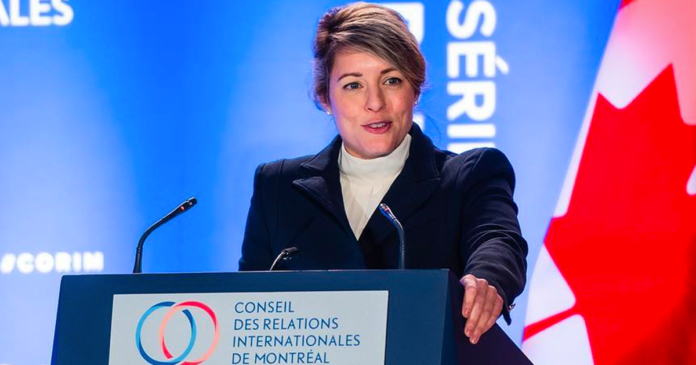Foreign Affairs Minister Mélanie Joly was at the forefront of a declaration to mitigate online disinformation at the United Nations on Wednesday.
“This change is all happening at a speed and scale we’ve never seen before. We can’t afford to wait before acting,” said Joly, who referred to the declaration as a “concrete step towards establishing global norms on disinformation, misinformation, and information integrity.”
The document, called the Global Declaration on Information Integrity Online, was presented by Joly and claims to take the “necessary and appropriate measures, including legislation, to address information integrity and platform governance.”
Signatures of the document include the United States, Germany, Australia, Japan, South Korea and the United Kingdom, among others. A total of 28 countries signed the document.
These countries are promising to rid the internet of disinformation in a way that “complies with international human rights law,” like freedom of opinion and expression, according to the document.
The declaration plans to rely on news media in their fight against disinformation and countries on board have agreed to bolster “user access to diverse online content, including national and international sources of news and information,” and “promote and respect pluralistic media and journalism, and protect access to media content as one measure to counter disinformation.”
Newly created artificial intelligence like ChatGPT will be monitored “to identify the possible risks, impacts, harms, benefits and opportunities to the information ecosystem online.”
Joly hopes to combat threats posed by artificial intelligence which “has great potential to harm the integrity of the online information environment” by its ability to mass-produce disinformation.
The early workings of the document were spearheaded by Canada in partnership with the Netherlands, according to the National Post.
Joly said the declaration is a result of the rising “illiberal regimes,” like Russia, who she claims continue to “wage information warfare and pollute the information environment.”
Information integrity is defined in the document as a system which can ensure people will have access to accurate information while also being offered a variety of ideas.
The declaration promises that it will refrain from “blocking or restricting access to the Internet, eroding privacy, intimidating, harassing or abusing journalists, researchers and human rights defenders, interfering with their ability to operate freely, or criminalizing or otherwise punishing the exercise of the right to freedom of expression online.”
Internet platforms have also been invited by signatories to create their own measures to fight disinformation, like having transparency regarding how they operate their algorithms.





















